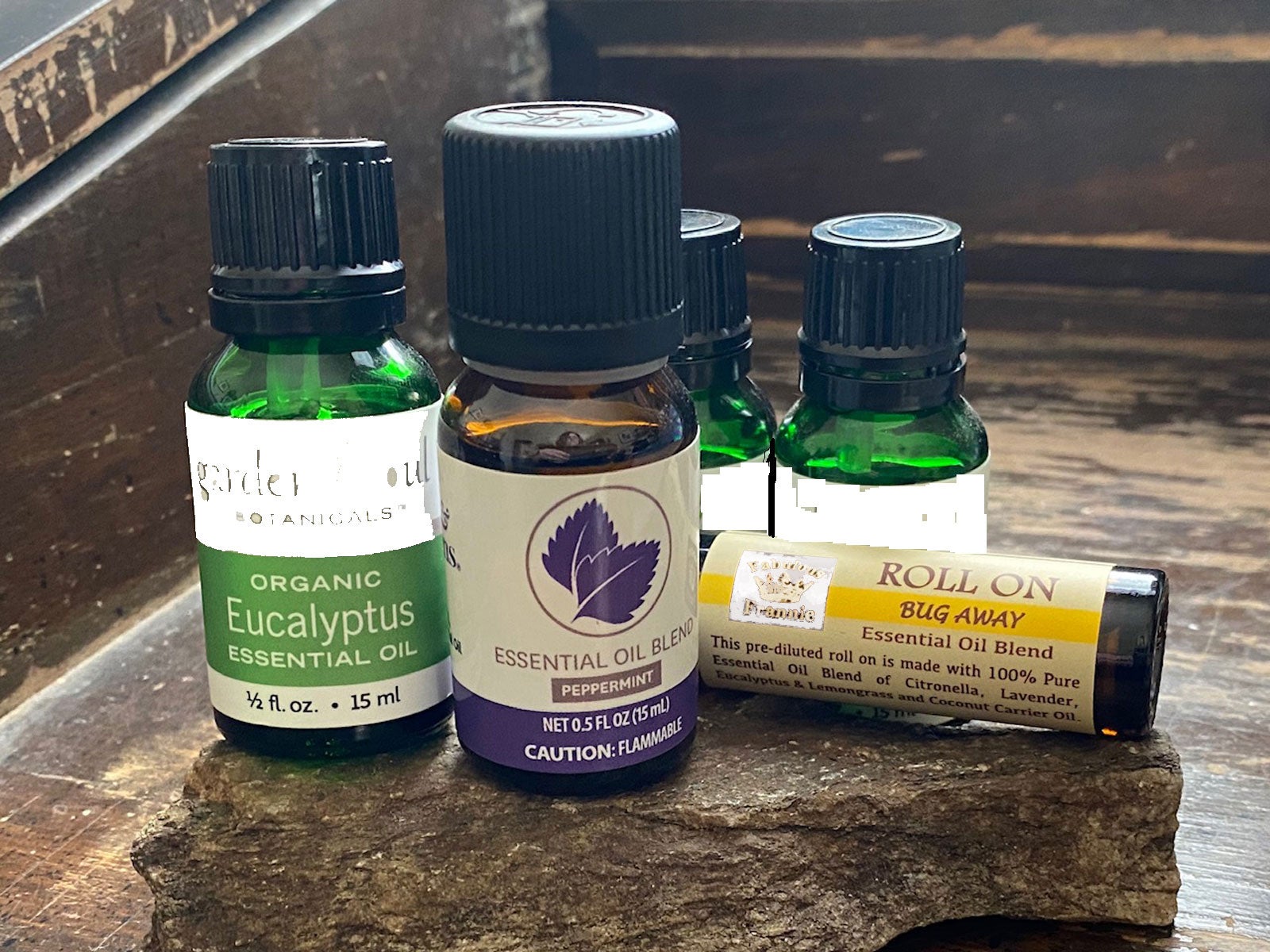Do Essential Oils Stop Bugs: Using Essential Oil As A Pesticide


Do essential oils stop bugs? Can you deter bugs with essential oils? Both are valid questions and we have answers. Keep reading for more information on using essential oils to deter bugs.
About Essential Oil Bug Repellents
Insect repellents prevent pests from driving us crazy on long hikes or lazy summer evenings, but they serve a more important function; a good bug repellant may also ward off serious insect-borne diseases like Lyme disease and West Nile virus.
The problem is that toxic chemicals in commercial insect repellants may present certain health risks, especially when they build up in the tissues over time. The answer may be essential oil bug repellents, most of which work by releasing vapors that confuse a pest’s ability to detect their host.
However, not all essential oils for insect repellants are created equal. In other words, different essential oil bug repellents deter different bugs.
How to Deter Bugs with Essential Oils
Here are a few suggestions for using essential oils for insect repellents:
- Educate yourself about each essential oil and its effects before using essential oil as a pesticide. Essential oils are highly concentrated and should be used with caution. Some oils may be used undiluted but most are diluted in a base oil. Some essential oils can be toxic if applied improperly, and many may be unsafe when ingested. Some essential oils are phototoxic too.
- Keep essential oils away from children and pets. Never allow young children to apply essential oil bug repellents. Some oils shouldn’t be used on children under three years, and most aren’t safe for infants under two months.
- Combined oils often make effective essential oil bug repellents. Many “recipes” are available online.
Essential Oils for Insect Repellent
- Mosquitoes: Peppermint, clove, citrus, pine, lavender, thyme, geranium, lemongrass, eucalyptus, basil
- Ticks: Cedar, geranium, juniper, rosewood, oregano, grapefruit
- Flies: Geranium, eucalyptus, sandalwood, lemon, rosemary, lavender, tea tree, mint
- Fleas: Citronella, lemongrass, pink, orange, lavender, cedar, tea tree, pennyroyal, clove, peppermint, basil
- Horseflies: Thyme, citronella, eucalyptus
- Bees: Clove, geranium, cedar, citronella, geranium, peppermint, eucalyptus
- Wasps: Lemongrass, geranium, clove, peppermint
Gardening tips, videos, info and more delivered right to your inbox!
Sign up for the Gardening Know How newsletter today and receive a free copy of our e-book "How to Grow Delicious Tomatoes".

A Credentialed Garden Writer, Mary H. Dyer was with Gardening Know How in the very beginning, publishing articles as early as 2007.
-
 Looking For Plants To Give You The Soft And Fuzzies? Try These 5 Fuzzy Leaf Plant Options
Looking For Plants To Give You The Soft And Fuzzies? Try These 5 Fuzzy Leaf Plant OptionsLovers of texture, drama, silver foliage and tactile plants will adore these special sensory garden additions. These fuzzy leaf plant options will leave you all aglow
By Susan Albert
-
 Get Ready For A Summer Of Hummers! Grow These Full Sun Hummingbird Plants and Flowers
Get Ready For A Summer Of Hummers! Grow These Full Sun Hummingbird Plants and FlowersIf you’re lucky enough to enjoy a sunny backyard, make sure you are maxing out on your pollinator opportunities and grow these full sun hummingbird plants and flowers
By Tonya Barnett